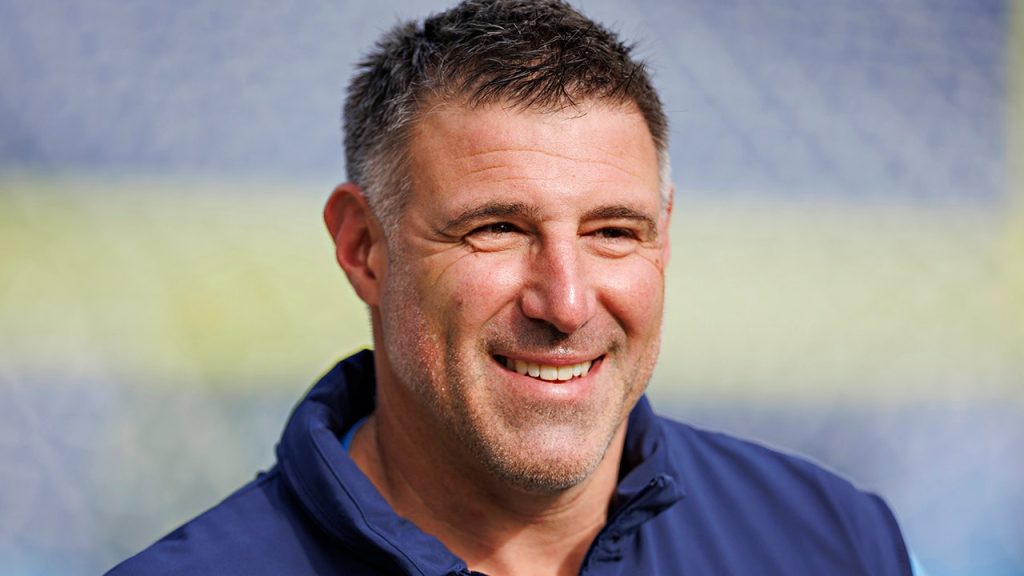The New England Patriots’ unexpected decision to part ways with Jerod Mayo and subsequently appoint Mike Vrabel as their new head coach has sent ripples through the NFL. While the initial reports are concise, they offer a glimpse into a potentially seismic shift within the Patriots’ organization, a franchise renowned for its stability and long-term planning. This transition raises several key questions about the Patriots’ future direction, the dynamics within the coaching staff, and the broader implications for the AFC East and the league as a whole. A deeper examination of this coaching change requires exploring the context surrounding Mayo’s dismissal, Vrabel’s qualifications and coaching philosophy, and the potential impact on the Patriots’ roster and overall strategic approach.
Jerod Mayo’s departure after a seemingly successful season-ending victory against a division rival raises eyebrows. While the specific reasons behind his dismissal remain undisclosed, speculation abounds. Did philosophical differences emerge between Mayo and the Patriots’ ownership or front office? Were there disagreements regarding player personnel decisions or offensive and defensive strategies? Or did another team present Mayo with a more enticing opportunity, prompting the Patriots to move on? Understanding the factors that led to Mayo’s departure is crucial for assessing the logic behind Vrabel’s appointment and the Patriots’ overall vision for the future. The abrupt nature of the change suggests a potential internal conflict or a rapid, decisive response to an external opportunity. Further investigation into Mayo’s relationship with the Patriots’ hierarchy and his potential career trajectory will shed more light on this unexpected turn of events.
Mike Vrabel, a former Patriots player and respected defensive coordinator for the Tennessee Titans, brings a wealth of experience and a proven track record to New England. His tenure with the Titans showcased his ability to build a formidable defense and foster a winning culture. However, Vrabel’s offensive philosophy and his ability to develop a young quarterback remain somewhat unknown quantities. The Patriots’ offensive struggles in recent years have been a significant concern, and Vrabel’s approach to revitalizing the offense will be a critical factor in determining the team’s success. Furthermore, his relationship with Bill Belichick, the Patriots’ long-time head coach and de facto general manager, will be crucial for navigating the complex power dynamics within the organization. Understanding Vrabel’s coaching style, his offensive and defensive schemes, and his ability to collaborate with Belichick will provide valuable insights into the Patriots’ future trajectory.
The impact of this coaching change extends beyond the coaching staff itself, potentially influencing the Patriots’ roster construction and overall strategic approach. Will Vrabel prioritize bolstering the offensive line, investing in skilled receivers, or strengthening the defensive secondary? How will his coaching philosophy mesh with the existing talent on the roster, and what adjustments will be necessary to accommodate his preferred schemes? Furthermore, how will this transition impact the development of Mac Jones, the Patriots’ young quarterback? Vrabel’s ability to nurture Jones’ growth and tailor the offense to his strengths will be paramount for the team’s long-term success. Analyzing the potential roster moves, schematic changes, and player development strategies under Vrabel’s leadership will provide valuable insights into the Patriots’ evolving identity.
The implications of this coaching change resonate throughout the AFC East, a division already characterized by fierce competition. The Buffalo Bills, Miami Dolphins, and New York Jets are all vying for supremacy, and the Patriots’ coaching transition adds another layer of intrigue to the divisional landscape. Will Vrabel’s arrival elevate the Patriots back to their dominant position, or will the other AFC East teams capitalize on this period of transition? The interplay between the Patriots’ new coaching staff, their evolving roster, and the competitive landscape within the division will be a key storyline to follow in the upcoming season. Observing how the other AFC East teams react to this change and adjust their own strategies will provide further context for understanding the potential ramifications of Vrabel’s appointment.
In conclusion, the New England Patriots’ decision to hire Mike Vrabel as their new head coach represents a significant turning point in the franchise’s history. This unexpected move raises numerous questions about the team’s future direction, the dynamics within the coaching staff, and the broader implications for the AFC East. Analyzing the factors surrounding Jerod Mayo’s departure, evaluating Vrabel’s qualifications and coaching philosophy, assessing the potential impact on the Patriots’ roster and strategic approach, and considering the broader implications for the AFC East will provide valuable insights into the significance of this coaching change and its potential ramifications for the NFL landscape. This transition promises to be a captivating storyline as the Patriots embark on a new chapter under Vrabel’s leadership.


